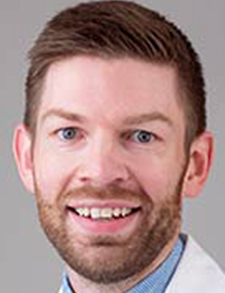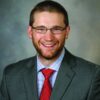
Dr. Lawson
Clinical question: Does point of care ultrasound (POCUS) of the internal jugular vein accurately predict central venous pressure?
Background: Assessing volume status is critical to the care of heart failure patients in both the inpatient and the outpatient setting, but volume exams are notoriously difficult. While the gold-standard measurement of venous congestion is determining central venous pressure via right heart catheterization, this invasive test is not practical nor indicated for most patients with decompensated heart failure.
Study design: A retrospective cohort study
Setting: Two U.S. academic hospitals
Synopsis: In this study of 100 patients undergoing right heart catheterization for heart failure (mean age 59.6, 66% with a reduced ejection fraction), jugular venous pressure (JVP) was estimated via handheld ultrasound and compared to invasive hemodynamic measurements performed on the same day. Their estimated JVP via ultrasound (uJVP) was measured via POCUS by determining the height above the sternal angle at which the internal jugular vein tapered to become smaller than the adjacent internal carotid artery with the patient semi-upright between 30 and 45 degrees. This measurement was then added to the classically accepted 5-centimeter distance between the sternal angle and the right atrium to estimate right atrial pressure in centimeters of water.
The correlation between uJVP measurements and right atrial pressure measured via right heart catheterization had a correlation coefficient of 0.79. A uJVP measurement of >8 cm H2O was 94% sensitive for detecting elevated right atrial pressure of >10 mm Hg. The AUC of the receiver-operating characteristics curve was 0.84.
Bottom line: POCUS performs well at estimating right atrial pressures compared to invasive right heart catheterization and may prove to be an increasingly useful tool in the care of patients with heart failure.
Citation: Wang L, et al. Accuracy of ultrasound jugular venous pressure height in predicting central venous congestion. Ann Intern Med. 2022;175(5):W54. doi:10.7326/L22-0118.
Dr. Lawson is an assistant professor of medicine at the University of Virginia School of Medicine, Charlottesville, Va
